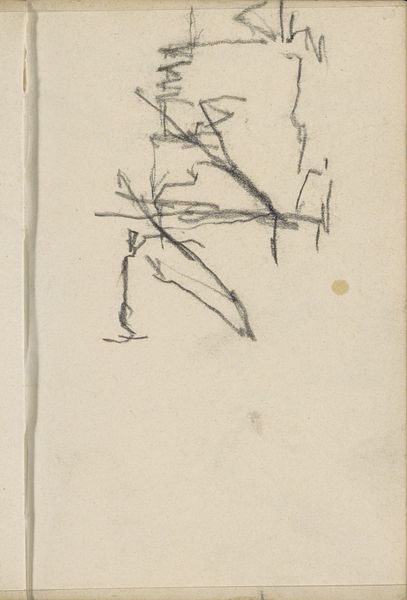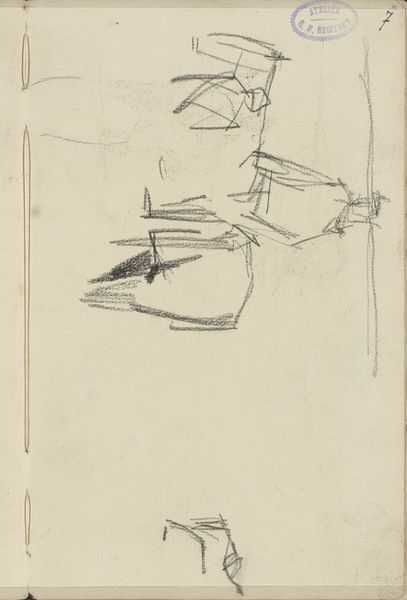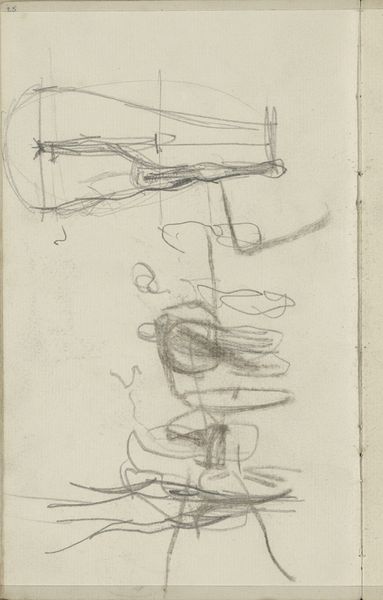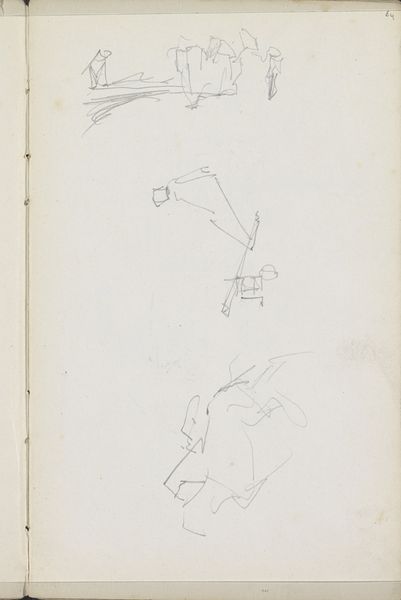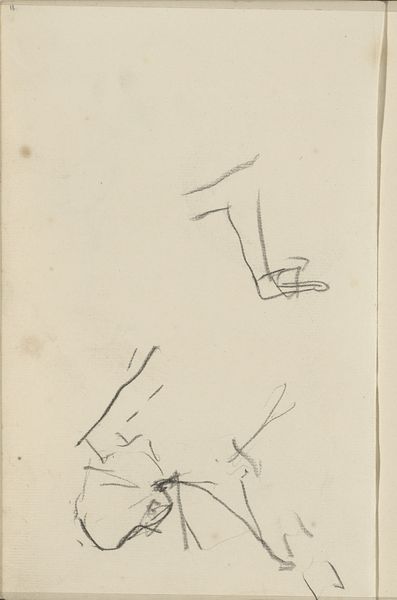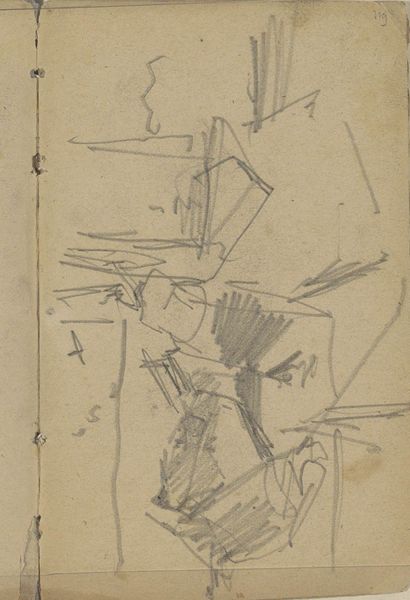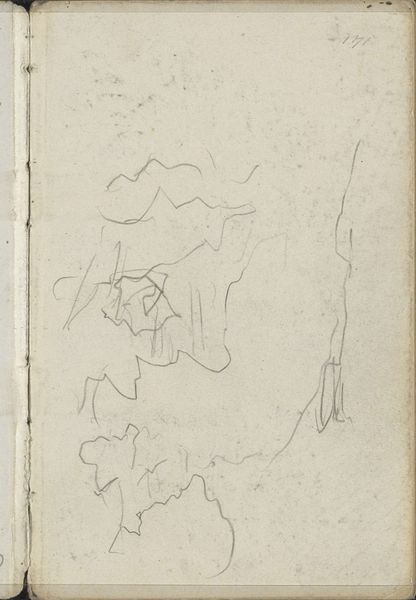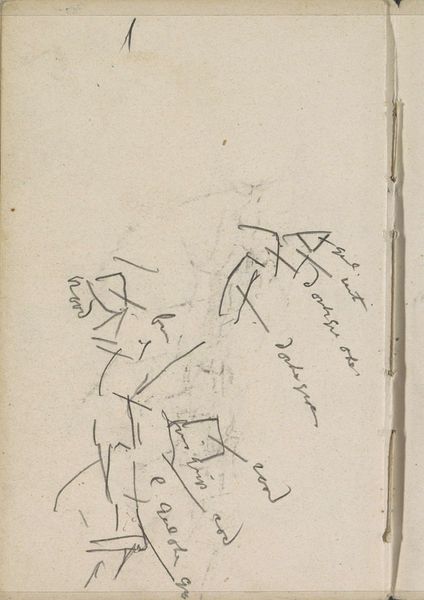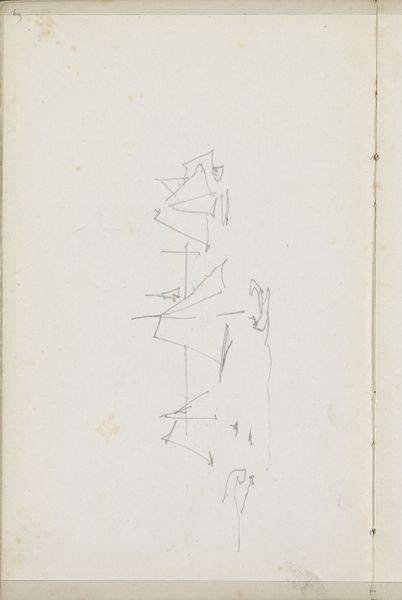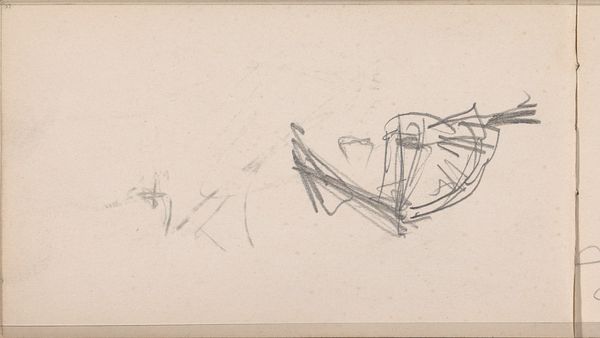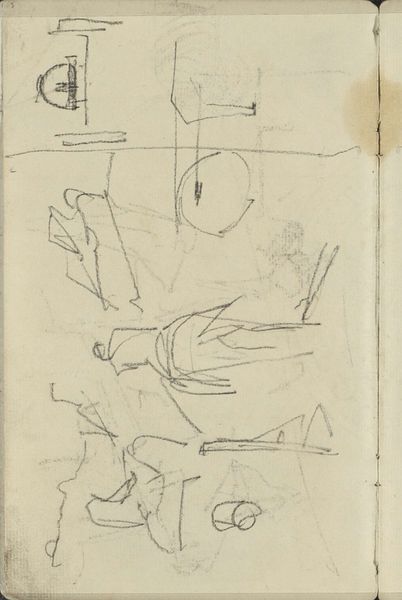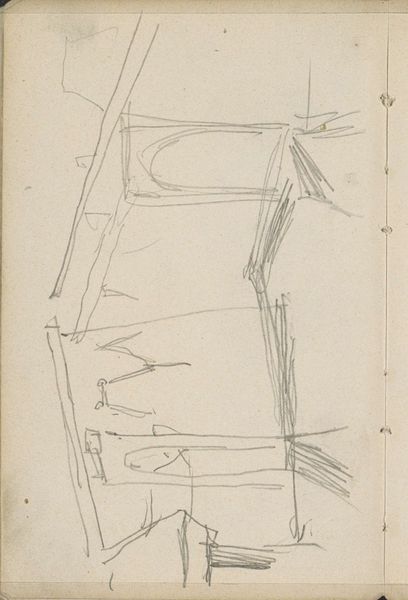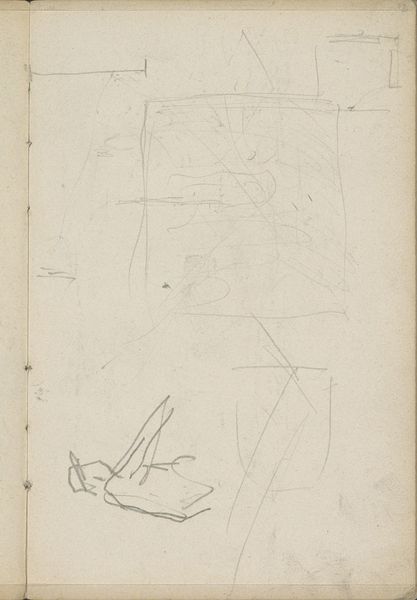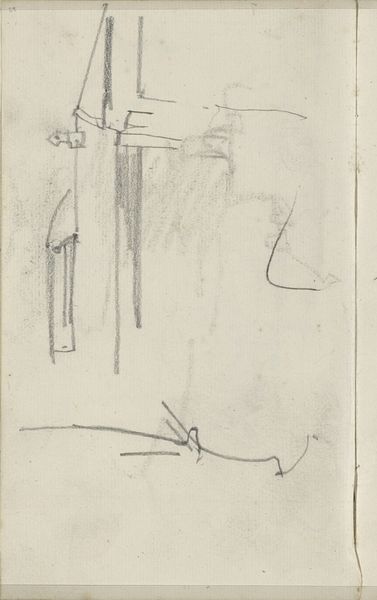
drawing, pencil, graphite
#
portrait
#
drawing
#
amateur sketch
#
light pencil work
#
quirky sketch
#
impressionism
#
figuration
#
personal sketchbook
#
idea generation sketch
#
sketchwork
#
pencil
#
line
#
graphite
#
sketchbook drawing
#
storyboard and sketchbook work
#
sketchbook art
#
initial sketch
Copyright: Rijks Museum: Open Domain
Curator: This is "Studieblad, mogelijk met figuren," or "Study Sheet, Possibly with Figures," a pencil and graphite drawing by George Hendrik Breitner, likely from around 1881 to 1883. It’s currently held here at the Rijksmuseum. What are your initial thoughts on it? Editor: My first impression is…ephemeral. The light pencil work makes the figures seem like they could disappear at any moment, like thoughts fading from memory. It evokes a feeling of transience. Curator: Absolutely. Breitner’s sketchbooks are interesting artifacts within his wider body of work. As personal documents, they provide insight into his process, revealing how he captured fleeting moments and impressions of urban life in Amsterdam. It reflects the artistic trends of the late 19th century. Editor: It definitely reads as a personal and rapid form of visual note-taking. We are peering into the artist's inner dialogue with his surroundings. Who are these figures? What stories do they hold? It prompts us to think about representation—who gets depicted, and how? Curator: The lack of concrete details emphasizes a specific facet of Impressionism; the movement of life instead of perfectly rendered realism. It shows us his initial ideas. How does one build and create paintings from fleeting observation and personal expression? Editor: And where do those fleeting observations come from? What were the power structures operating in the Amsterdam he was sketching? The figures seem anonymous; does that anonymity reflect the lived experiences of marginalized people at the time, those unseen by mainstream society? Curator: It makes you wonder, doesn't it? What Breitner chose to immortalize, even in sketch form, speaks volumes about the culture in which he lived and the gaze through which he perceived his subjects. These initial sketches are invaluable in considering these points of context. Editor: Exactly. They remind us that even seemingly simple sketches carry social weight. Considering the sketch within the framework of the artist's world helps us ask urgent questions about art's role in shaping our understanding of the past and present. Curator: It’s a wonderful testament to the layered complexities held within a simple graphite drawing. Editor: Agreed. It’s been insightful to explore how this "Study Sheet" becomes a portal to deeper questions about representation, society, and the artist's gaze.
Comments
No comments
Be the first to comment and join the conversation on the ultimate creative platform.
